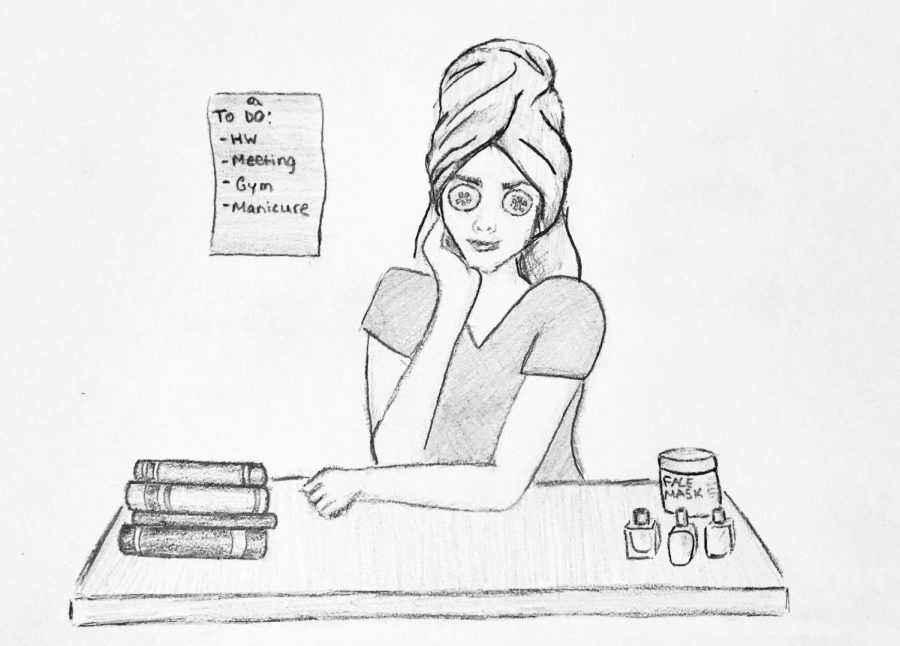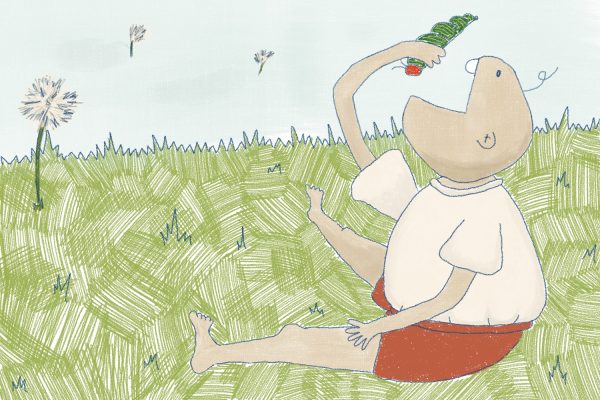This year, do self-care for you
January 25, 2019
Mid-way through January, many people have New Years’ resolutions dictating their daily routines and choices.
By opting to work out more frequently, eat a healthier diet or cut back on alcohol and drugs, many people are picking up self-care, a significant pop culture trend.
However, I want to throw a new idea into your mind, full of new resolutions: self-care really is a balance, and it looks different for everyone.
Many self-care subscribers have started to embrace skincare routines, workout regimens and creative eating practices.
For many, adopting these new habits in order to achieve goals and focus on the self is quite beneficial.
The whole process of self-care appears shiny and bright, as consumers seem to immediately transform physically and emotionally after using a product.
Yet, people devoting time and money to self-care must realize that today’s popular, advertised, shiny version of self-care is a trend, nothing more than a conception of popular culture.
And because of this, it’s presented and marketed to people in very specific, profit-conscious ways.
The skincare routines advertised to relax the face may not relax the mind, and adhering to a new diet plan that may have worked for someone else may not ensure success for everyone.
And let’s not forget, all trends die eventually.
For students, taking care of our minds and bodies is extraordinarily important.
A little self love goes a long way.
If we feel we are supposed to exfoliate our problems away, we’re not going to help ourselves, strengthen our minds and bodies or increase our happiness.
The reality of self-care is that it’s not always fun. It’s not always shiny or packaged. And it doesn’t always smell good.
Peel-off masks are not the golden rule of self-care.
True individuality is each person embarking on their own self-care adventure.
They’re each going to have a remarkably different journey.
It might be fun for one person — getting their nails done, going to the gym, getting a new piercing or playing basketball with some pals.
But it might be less fun for another — going to therapy, changing eating habits and reaching goals.
It’s OK if it’s not always fun.
In 1988, the words of the African-American lesbian writer Audre Lorde became a rallying cry: “Caring for myself is not self-indulgence, it is self-preservation, and that is an act of political warfare.”
If you’re taking care of your mind and your body, you’re practicing self-care in its purest form.
















![Can’t buy me [self] love](https://vtcynic.com/wp-content/uploads/2024/04/self-care-FINAL-600x398.jpg)
